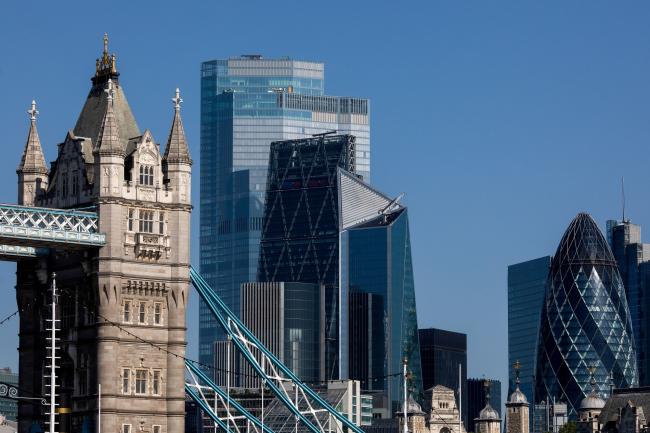(Bloomberg) -- U.K. and European Union officials have the next seven weeks to find something that has eluded them since March: an agreement over their future relationship.
After a brief summer hiatus, face-to-face discussions will resume in Brussels on Tuesday. Over dinner, Prime Minister Boris Johnson’s top negotiator, David Frost, will discuss a path to a deal with Michel Barnier, his EU counterpart. Then, about 50 officials from either side will thrash out the technicalities on Wednesday and Thursday before the two chiefs reconvene Friday morning.
Britain and the bloc want to reach an agreement before the negotiations are scheduled to conclude Oct. 2 -- but, so far, neither has made adequate concessions for the other. Each is waiting for the other to blink first, according to officials in both camps. Given that, there is little prospect of a breakthrough this week, said one EU official, who spoke on condition of anonymity because the talks are held in private.
“Our assessment is that a deal can still be reached in September,” Johnson’s spokesman Jamie Davies told reporters in London on Monday.
The two biggest sticking points remain what access EU vessels will have to U.K. fishing waters and how closely Britain will have to stick to the bloc’s rules to ensure a level competitive playing field. The EU has made agreement on both subjects a precondition of any wider trade accord. The topics have each been allotted four two-hour sessions this week, and discussions will continue when officials meet in London next month.
Effective Deadline
Unless a deal is reached by the end of the post-Brexit transition period on Dec. 31, consumers will face the return of tariffs and quotas for the first time in a generation. But after five months of tortuous negotiations, time is running out. EU officials say the bloc needs at least 11 weeks to ratify any agreement, making an Oct. 15 summit of European leaders the effective deadline.
The EU has made some concessions from its opening positions, including accepting that the European Court of Justice won’t have a role in policing any accord -- a key demand of Brexiters in Johnson’s Conservative Party. For its part, the U.K. has backed away from its attempt to structure any agreement as a series of mini-deals with their own dispute-resolution mechanisms -- something that irked the EU.
Negotiators are still waiting for a joint legal text, a key document setting out the areas of agreement that allows the two sides to narrow down their differences. Without it, both sides are working blind and remain some way from a deal, the EU official said.
©2020 Bloomberg L.P.

